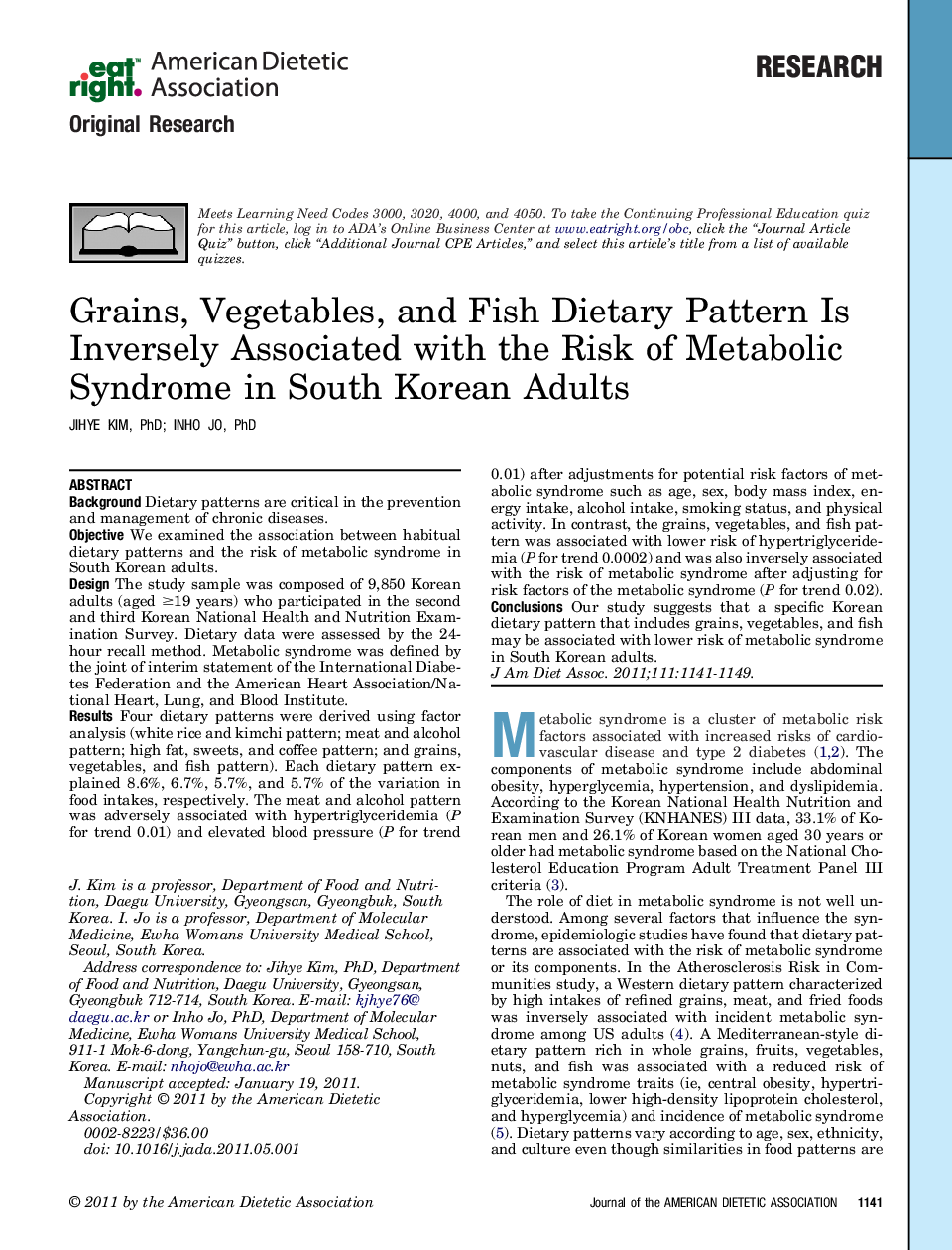| Article ID | Journal | Published Year | Pages | File Type |
|---|---|---|---|---|
| 2657126 | Journal of the American Dietetic Association | 2011 | 9 Pages |
BackgroundDietary patterns are critical in the prevention and management of chronic diseases.ObjectiveWe examined the association between habitual dietary patterns and the risk of metabolic syndrome in South Korean adults.DesignThe study sample was composed of 9,850 Korean adults (aged ≥19 years) who participated in the second and third Korean National Health and Nutrition Examination Survey. Dietary data were assessed by the 24-hour recall method. Metabolic syndrome was defined by the joint of interim statement of the International Diabetes Federation and the American Heart Association/National Heart, Lung, and Blood Institute.ResultsFour dietary patterns were derived using factor analysis (white rice and kimchi pattern; meat and alcohol pattern; high fat, sweets, and coffee pattern; and grains, vegetables, and fish pattern). Each dietary pattern explained 8.6%, 6.7%, 5.7%, and 5.7% of the variation in food intakes, respectively. The meat and alcohol pattern was adversely associated with hypertriglyceridemia (P for trend 0.01) and elevated blood pressure (P for trend 0.01) after adjustments for potential risk factors of metabolic syndrome such as age, sex, body mass index, energy intake, alcohol intake, smoking status, and physical activity. In contrast, the grains, vegetables, and fish pattern was associated with lower risk of hypertriglyceridemia (P for trend 0.0002) and was also inversely associated with the risk of metabolic syndrome after adjusting for risk factors of the metabolic syndrome (P for trend 0.02).ConclusionsOur study suggests that a specific Korean dietary pattern that includes grains, vegetables, and fish may be associated with lower risk of metabolic syndrome in South Korean adults.
